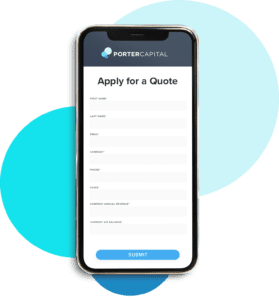Staffing agencies are vital players in the job market, serving as intermediaries that connect businesses with qualified job seekers. Whether you are an existing staffing agency or someone considering starting one, understanding how staffing agencies generate revenue is essential to your success in this industry.
As a staffing agency, your specialization lies in sourcing, screening, and placing candidates into temporary, permanent, or contract positions, tailored to the unique requirements of client organizations. However, to sustain and grow your agency effectively, you need a deep understanding of the revenue models employed in this field.
In the following sections, we will explore the diverse ways in which staffing agencies generate revenue. By gaining insights into these revenue models, you will be equipped to navigate the competitive landscape, seize opportunities, and achieve success in the dynamic and evolving world of staffing.
Want to Boost Agency Profit?
Discover how Porter Capital’s unique financial solutions can help staffing agencies increase profitability.
Common Ways That Staffing Agencies Make Money
For a staffing agency to continue operating effectively, it must make enough money to manage everyday expenses and generate a profit. However, staffing agencies generate profits differently from many traditional business models. Some ways staffing agencies make money include:
The Types of Employees They Hire
Staffing agencies help connect applicants with organizations looking for employees. When an employee comes into the staffing agency, the team will interview the employee and test their skills before matching them with the company that best fits their abilities and working preferences. The two types of employees a staffing agency will help a company hire include:
1. Temporary Employees
Most temporary staffing agencies gain a profit by requesting a percentage of the salary from the employee they help a company hire. If the temporary employee isn’t requested on a temp-to-hire basis, the agency will typically charge a markup of the average salary for this position to ensure both the employee wages and staffing agency costs are covered. Temp agencies will charge the business hourly for the employee’s work and then pay the employee.
2. Direct Placement Employees
If a staffing agency completes a direct hire instead of a temporary placement, the agency will typically collect a percentage of what the employee makes in their first year of full-time employment.
A staffing agency may also offer a temporary-to-permanent arrangement in which the employee begins as a temporary placement and must earn full-time employment. The staffing agency may use a combination of billing options for temporary-to-permanent employees. For example, they may collect a percentage of the employee’s paycheck while they are a temporary hire and then a more significant sum after the employee completes the hiring process.
Flat Fee Staffing
Another way staffing agencies generate a profit is by charging businesses a flat fee. Agencies that charge a flat fee commonly operate on a retainer and charge companies monthly until they fill the position. Flat-fee staffing agencies are more common in niche industries and may aid in finding employees for executive-level positions, uncommon jobs in science or engineering, and specialized medical positions.
Recruitment
Staffing agencies can also make a profit by charging for their recruitment services. A company can outsource some or all of its recruitment processes to the staffing agency. The company will then pay an agreed-upon percentage. With outsourced recruitment services, the staffing agency works closely with the business’s current HR team for a more thorough hiring solution.
Additionally, staffing agencies can offer on-demand recruiting that enables businesses to utilize the agency’s services by the hour to help teams or support recruiters during a growth period. Another option is recruitment as a service, where businesses pay a monthly fee to utilize staffing services from a recruitment agency.
Factors Influencing Staffing Profitability
Several key factors influence the profitability of staffing agencies. By understanding and effectively navigating these factors, both existing staffing agencies and those starting out can enhance their financial performance and overall success in the industry. Let’s explore the main factors that play a crucial role in shaping the profitability of staffing agencies:
Market Demand and Industry Trends
The level of market demand for staffing services and the prevailing industry trends significantly impact a staffing agency’s profitability. Keeping a pulse on the job market, understanding emerging skill requirements, and anticipating shifts in demand are essential for aligning your services with current market needs. Staying informed about industry trends allows you to position your agency strategically and adapt your offerings to capitalize on lucrative opportunities.
Competitiveness and Differentiation Strategies
The level of competition within the staffing industry can directly impact profitability. Effective differentiation strategies provide a competitive edge and help attract both clients and candidates. By clearly defining your unique value proposition, showcasing specialized expertise, or offering innovative services, you can differentiate your agency from competitors and establish a strong market presence. Strategic branding, superior customer service, and a strong network of qualified candidates contribute to long-term profitability.
Operational Costs and Efficiency
Managing operational costs and optimizing efficiency are critical factors in driving profitability. Streamlining internal processes, leveraging technology, and implementing effective resource allocation practices can improve operational efficiency. Additionally, monitoring and controlling overhead expenses such as rent, utilities, and administrative costs help maintain healthy profit margins. By continuously evaluating and optimizing operations, staffing agencies can maximize profitability.
Pricing Strategies and Fee Structures
Developing effective pricing strategies and fee structures is another crucial element in determining profitability. Setting competitive and attractive pricing while considering market dynamics, client budgets, and industry standards is essential. It’s important to strike a balance between offering competitive rates that appeal to clients and ensuring that your agency’s costs and margins are adequately covered. Regularly evaluating and adjusting pricing strategies based on market conditions and client relationships can contribute to long-term profitability.
Find Funding for All the Ways Your Staffing Agency Does Business
Staffing agencies have a slightly different business model than traditional companies in that they sometimes have to wait weeks or months for payment. They depend on employees submitting timecards to receive their payment. At Porter Capital, we want to help improve the payment process by offering payroll factoring for staffing agencies. This service allows staffing agencies to get paid at the time of invoicing instead of waiting on customers.
Our factoring services enable companies to access 85% to 95% of their invoice to maintain cash flow and daily operations. To learn more about our payroll solutions and how they can help you elevate your staffing business, we invite you to call us at 1-888-865-7678 or complete our online contact form today!




